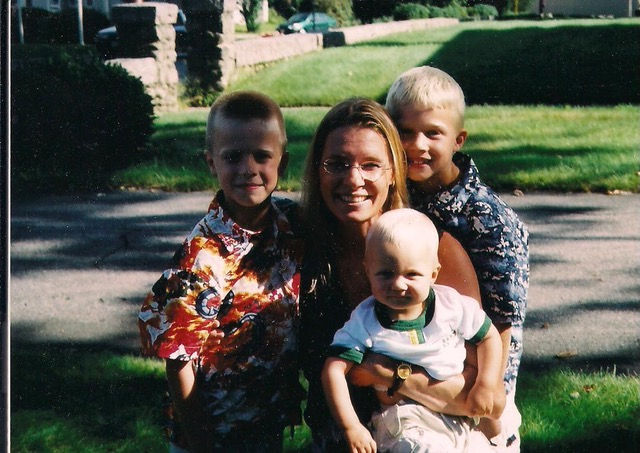Why NOT Me?
- Diane Legg
- Sep 29, 2018
- 3 min read
In the spring of 2004, a family friend, Susan Levinksy, a non-smoking 43 years old mother of 3, was diagnosed with stage IIIB lung cancer. I was shocked and thought it was a fluke as I had never heard of a non-smoker getting lung cancer. I was completely ignorant to how prevalent the disease was, and how dismal the survival rates were.
In October of the same year, at the age of 42, I was taken aback when I too was diagnosed with lung cancer. I had stage I non-small cell lung cancer. We found my lung cancer purely by chance when I pulled a back muscle picking up my then 1-year old son and a CT scan was ordered to rule out a pulmonary embolism. An active, otherwise healthy mother of three, I had never considered myself at risk for lung cancer. I had a lobectomy, where my upper lobe of my left lung was removed, followed by three months of adjunct chemotherapy.

At the start of 2005, while I was going through my second round of chemotherapy, Susan died; a mere nine months after being diagnosed. I was devastated. Having learned much more about the disease and its impact during my treatment, I was determined to be the voice for Susan and for others that had succumbed to this disease. I was determined to educate others and raise awareness of the disease. I became Co-Chair of the Massachusetts Chapter of Lung Cancer Alliance, a position which I held until December 2012. Lung Cancer Alliance’s mission resonated with me; patient support, awareness & changing health care policy. In 2006, I started Shine a Light on Lung Cancer Vigil in Boston to honor and remember those who have been touched by the disease and to raise awareness; a small grass roots effort has become one of the largest lung cancer awareness events in the country. In 2011, we started LUNGSTRONG, a non-profit, which supports lung cancer research. To date, we have helped fund over $3,000,000 in lung cancer research. LUNGSTRONG is dedicated to funding innovative lung cancer research in order to eradicate the disease.
I have been stunned by the lack of research that has been done, the lack of progress relative to screening and survival rates, and the lack of understanding by the general public, medical community, and government about the disease itself. Because of the stigma and the blame associated with lung cancer, the investment in research and early detection has been delayed and underfunded relative to its public health impact. This underfunding is greatly responsible for the dismal 18.6% five-year survival rate. Lung cancer, the most underfunded of all major cancers, has few survivors to advocate for changes in public health policies that have led to decades of neglect.
In 2011, we started LUNGSTRONG, a non-profit supporting lung cancer research. To date, we have helped fund over $3,000,000. In 2006, my lung cancer reoccurred and was in both of my lungs. Although I am now Stage IV, I consider myself incredibly blessed in so many ways. Along with the wonderful care I’ve received, I’ve been fortunate enough to have been able to participate in two clinical trials and my tumors are currently stable. These trials, along with many others and the research behind them, are critical to improving the statistics but are only possible with funding.



Comments